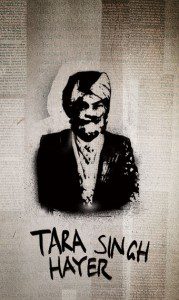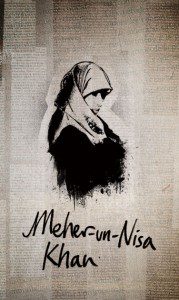Index relies entirely on the support of donors and readers to do its work.
Help us keep amplifying censored voices today.
 MURDERED 18 NOVEMBER 1998
MURDERED 18 NOVEMBER 1998
Tara Singh Hayer, Publisher, “Indo-Canadian Times” — Canada
Join us in demanding justice for Tara Singh Hayer. Already paralysed from an assassination attempt 10 years earlier, Hayer was shot to death outside his home on 18 November 1998. A week before his death, he said ominously, “If they get me, they get me. There’s nothing I can do and I’m not going to stop my work.” Hayer’s murder appears to be connected to his investigation into the 1985 bombing of an Air India flight, which resulted in the deaths of all 329 passengers and crew. Hayer had made statements to police that would incriminate members of a militant Sikh separatist group.
Police were accused of failing to provide Hayer with adequate protection, mismanaging his case, and dismissing the possibility of a link between Hayer’s death and the bombing. Hayer’s case is the first and only case of a journalist murdered specifically for his work in Canada. It remains unsolved.
International Day to End Impunity is on 23 November. Until that date, we will reveal a story each day of a journalist, writer or free expression advocate who was killed in the line of duty.

Hungary’s media regulations have created an atmosphere of tension among journalists. Mike Harris reports from Budapest
Date: Tuesday 6 Dec
Time: 6.30 – 8pm
Venue: Imperial College London, South Kensington Campus, Mechanical Engineering Building, Exhibition Road, London SW7 2AZ
Tickets: Free but limited – register here
Join Index on Censorship for ‘Data Debate: is transparency bad for science?’, a panel debate to launch the new issue of Index on Censorship magazine, ‘Dark Matter: what’s science got to hide?’
Scientific data is more freely available than ever. But does the push for openness help or hinder science?
Speakers include Sir Mark Walport, Director of the Wellcome Trust, George Monbiot, Guardian columnist and Baroness Onora O’Neill. Jo Glanville, Editor of Index on Censorship, will chair.
Many thanks to SAGE for their kind sponsorship of this event.
 MURDERED 17 NOVEMBER 2007
MURDERED 17 NOVEMBER 2007
Meher-un-Nisa Khan, Press Freedom Advocate — Mir Ali, Pakistan
Join us in demanding justice for Meher-un-Nisa. The wife of slain journalist Hayatullah Khan, Meher-un-Nisa, herself had become an advocate for journalists’ safety before she was murdered when a bomb detonated outside her bedroom window in Mir Ali, a militant stronghold in North Waziristan, on 17 November 2007. Her five children, who were sleeping in an adjoining bedroom, were not injured in the blast.
Hayatullah disappeared in December 2005 just days after he photographed shrapnel from a U.S. missile found at the scene where al-Qaeda leader Hamza Rabia was killed. His widely published photo contradicted a claim by the Pakistan government that Rabia died in an accidental explosion. Hayatullah’s body was found seven months later riddled with bullets, while another family member was killed several months later. Along with Mehr-un-Nisa’s murder, the killings are believed to be an attempt to stop the family from trying to expose Hayatullah’s killers. All three cases remain unsolved.
International Day to End Impunity is on 23 November. Until that date, we will reveal a story each day of a journalist, writer or free expression advocate who was killed in the line of duty.